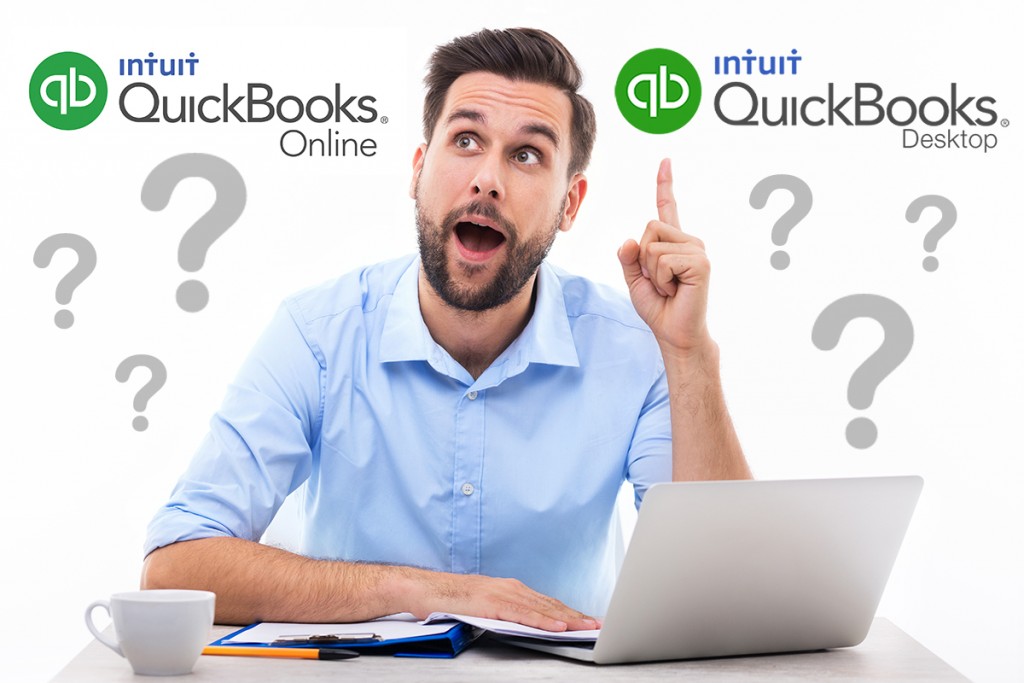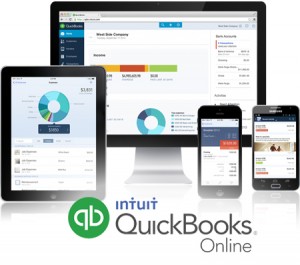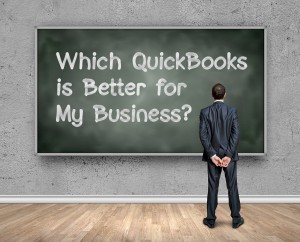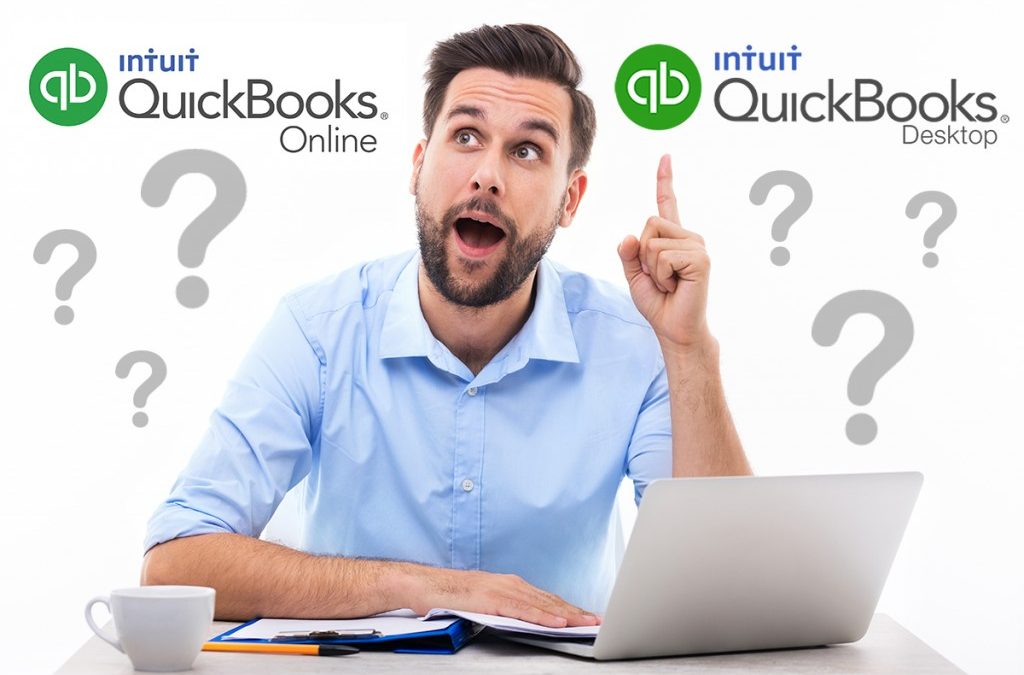
QuickBooks is, by far, the most popular small business accounting software on the market. First introduced in 1988, the software very quickly managed to acquire an 80% market share, and has remained at the top ever since.
QuickBooks Online, also referred to as QBO, was launched in 2004 and now serves nearly one and a half million businesses. In 2013, QBO was revamped to offer a more intuitive interface and improved performance. Since then, Intuit has heavily encouraged users to make the switch from desktop versions of QuickBooks to the cloud-based Quickbooks Online system.
For many small businesses, figuring out which version of QuickBooks is best for them has been a somewhat confusing choice. Both versions of the popular accounting software have their pros and cons. Understandably, those who have been using the desktop software for many years are reluctant to switch away from something they are already comfortable using, while those who are just getting started sometimes have difficulty deciding which version will suit their needs best.
In general, QuickBooks Online is probably going to be the better fit for all but a few very specific situations. Let’s take a look at how these two versions of the most popular accounting software in the world stack up against each other.
Initial Costs
QuickBooks Online definitely comes out ahead when it comes to the cost of getting started. QBO offers the first 30 days free, whereas the desktop version must be purchased and installed before you can try anything. You can’t beat free.
Recurring Costs
 QBO currently offers two packages, Essentials and Plus, which are billed on a monthly subscription. Intuit generally offers an introductory discount for six months. Or you may find that your bookkeeper or accountant can get you a better price, if they are an Intuit ProAdvisor. For the sake of simplicity, we’ll make our calculations using the regular monthly prices without any potential discounts, which are $27 for QBO Essentials, and $40 for QBO Plus.
QBO currently offers two packages, Essentials and Plus, which are billed on a monthly subscription. Intuit generally offers an introductory discount for six months. Or you may find that your bookkeeper or accountant can get you a better price, if they are an Intuit ProAdvisor. For the sake of simplicity, we’ll make our calculations using the regular monthly prices without any potential discounts, which are $27 for QBO Essentials, and $40 for QBO Plus.
1 year of QBO Plus will cost $480. The purchase of the QuickBooks desktop software will run about $300. At first, it may seem as though the desktop version is quite a bit cheaper, however, there are much larger differences in the final costs when you get into the details.
The following functions and services are included with your QBO subscription but require additional fees when using the desktop software:
- Automatic download of bank transactions – $10-$15 per month or +/- $120 per year
- Telephone support – $89 for 90 days
- Automatic secure backup – $9.95 per month or $120 per year
- Latest features and updates – $299 annual upgrade
- Online hosting (cloud access) – $40 – $200 per month per user / Minimum $480 yearly
- Access for up to 5 users – Requires 5 user license purchase
If we add this all up, using the minimum costs and accounting for only 90 days of telephone support, we get $1108 on top of the $300 for purchasing the desktop software, for a grand total of $1408. In the end, it’s nearly 3 times more expensive to get the same features using QuickBooks for the desktop. This, of course, doesn’t even factor in the cost of your computer hardware, maintenance time, etc.
Features And Functions
Both versions of QuickBooks offer the same basic functionality but the list of features unique to QBO is constantly growing.
The following are unique to QBO and not available to desktop users:
- Automatically schedule and send invoices
- Automatic download of bank transactions
- Supporting documents can be emailed with invoices
- Integration and automatic sync with 300+ cloud-based apps
- Audit log tracks users, 3rd party apps and list changes automatically
- Automatic reports emailed on a schedule you set
- Post to multiple accounts receivable or payable with a single journal entry
- First In First Out (FIFO) inventory tracking
- Data is hosted, backed up and secured on Intuit’s cloud servers
- Work from desktop, mobile or tablet at any time, any place
- Instant file access for accountants – no need to transfer data or travel
- Assistance center with online help and live chat
And just two features are unique to desktop users:
- Calculate and rebill job costs
- Calculate discounts by customer
The View Overall
 When you look at both products overall, it seems fairly clear that QuickBooks online is far more cost effective. This is a big plus for any small business that has to budget carefully and spend wisely.
When you look at both products overall, it seems fairly clear that QuickBooks online is far more cost effective. This is a big plus for any small business that has to budget carefully and spend wisely.
QBO also offers a lot of new benefits in functionality and security, many simply because of the fact that the system is online. You’ll be able to work, or just check up on things, from anywhere. If you’ve ever forgotten something important and had to travel back to the office to update a record or check on a bill, the ability to connect and do it from home is priceless. You can even look up information during meetings with a client right from your phone. The convenience and efficiency that comes with a cloud-based solution is a real game changer.
If you’re just starting out, QuickBooks Online is going to get you up and running faster and cheaper. If you’re already a desktop user, switching over to the cloud is going to enable you to reduce costs and work more efficiently. And what business isn’t going to benefit from lower expenses and higher efficiency?
Don’t miss our next post – Click Here to Subscribe
![]()


